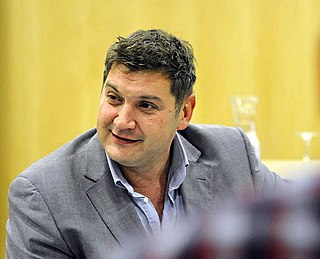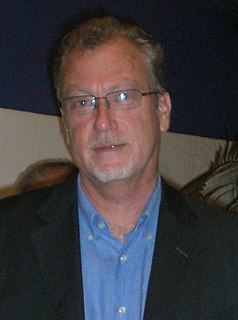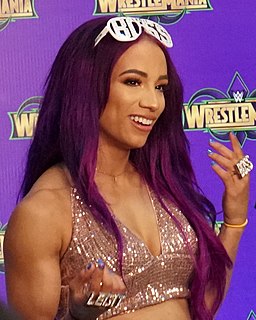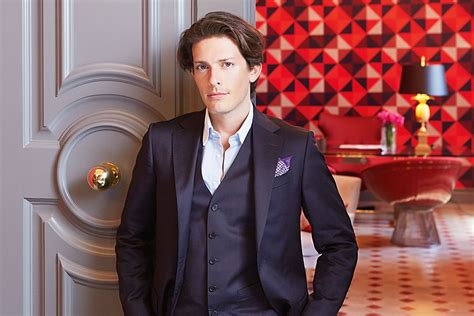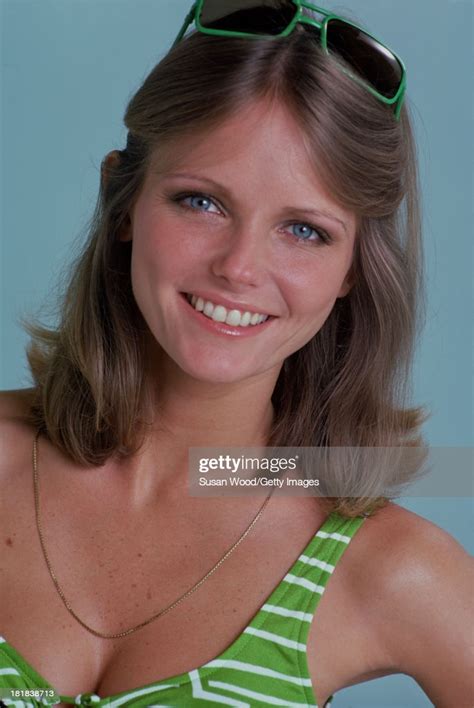A Quote by Thomas Bidegain
I wanted to direct when I was very young. I had no idea of cinema, of who's doing what. That was my first instinct: "Okay, I want to be the boss."
Related Quotes
Walt had a seat-of-the-pants approach on what he wanted musically. We kind of 'read' the boss and had a very high batting average, but there were occasions when he felt we had just written the wrong piece for the situation he wanted. We invariably listened to what he wanted - he was very descriptive in what he wanted and we could read him. We'd go back to the drawing board and work out what he wanted. He was a great inspiration, but a tough taskmaster.
If you're young and inexperienced you might accept what people tell you, that everything's going to be fine, it's okay. It's usually other young people saying that, who don't know any better. It's good to have a survival instinct because increasingly, especially in the whole Arab Spring sort of violence, you're mostly with young people who have not experienced what they're doing before.
It's okay if you want to go. Everyone wants you to stay. I want you to stay more than I've ever wanted anything in my life. But that's what I want and I could see why it might not be what you want. So I just wanted to tell you that I understand if you go. It's okay if you have to leave us. It's okay if you want to stop fighting.
I was lucky that I started very young, since I had a very clear idea of what I wanted to do. But my father is very conservative, and he never considered fashion to be a real career but something I could pursue as a hobby. He wanted me to be a doctor, and at one point, I thought of becoming a plastic surgeon.
My first professional audition - god, I've never told anybody about this - was for a test commercial, I think it was for Xbox. It involved me getting kidnapped by a granny who wanted to play the Xbox. It was very weird and I definitely had no idea what I was doing. I actually got the gig. It wasn't a commercial; it was what directors did when they wanted to show the company what they would do with a commercial.
I wanted to get more serialized. I had this idea for an event that would click onto everybody's mortality. I said, "I want somebody to die." Fortunately for me, when I was toying with that idea, John Landgraf, who's the head of FX but also a very smart executive, came up with the idea of the ashes in the maracas. He called me up and said, "Listen, what about this, they get the ashes in a box and when they get them, they shake them and they sound like maracas." And I was like, "Okay, now I've got my throughline."
The very first idea I ever had about making a film... my first thought about ever being a filmmaker was when I was sixteen years old and I wanted to make a Viking movie. And I wanted to make it in old Norse, which I was studying at the time. It's odd because at that age that's a stupidly ridiculous idea 'cause how will I ever be a filmmaker.
I wanted to start something in New York that focused on making products locally, and because I'd just had my second child didn't want to be traveling halfway across the world anymore. The idea was to have something wearable that fit with my reality, which was being a mom with two young kids and not always wanting to wear jeans. I still wanted to wear interesting clothes, and the options out there I found were either very expensive or very cheap. There was a big gap in the middle.
